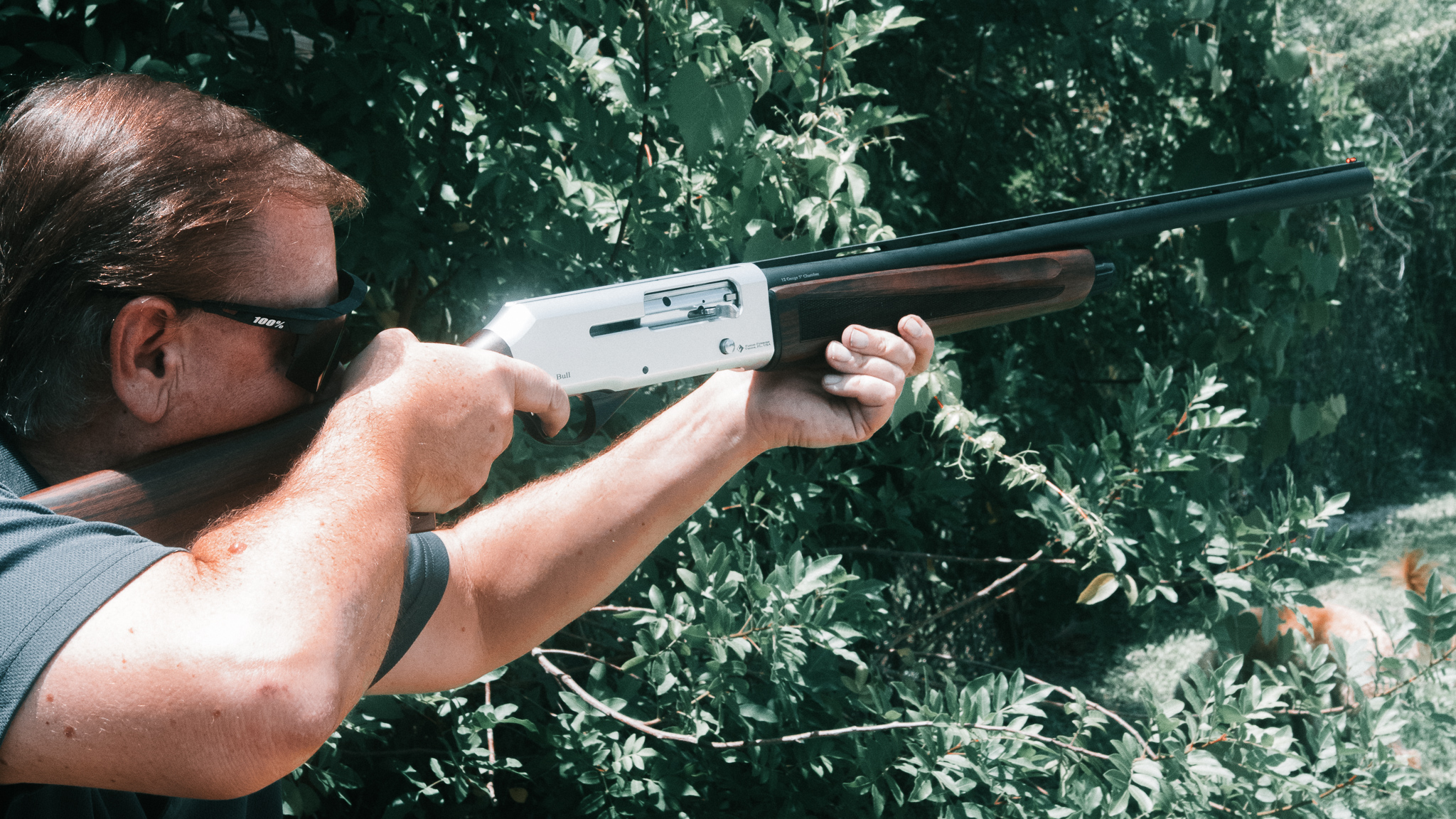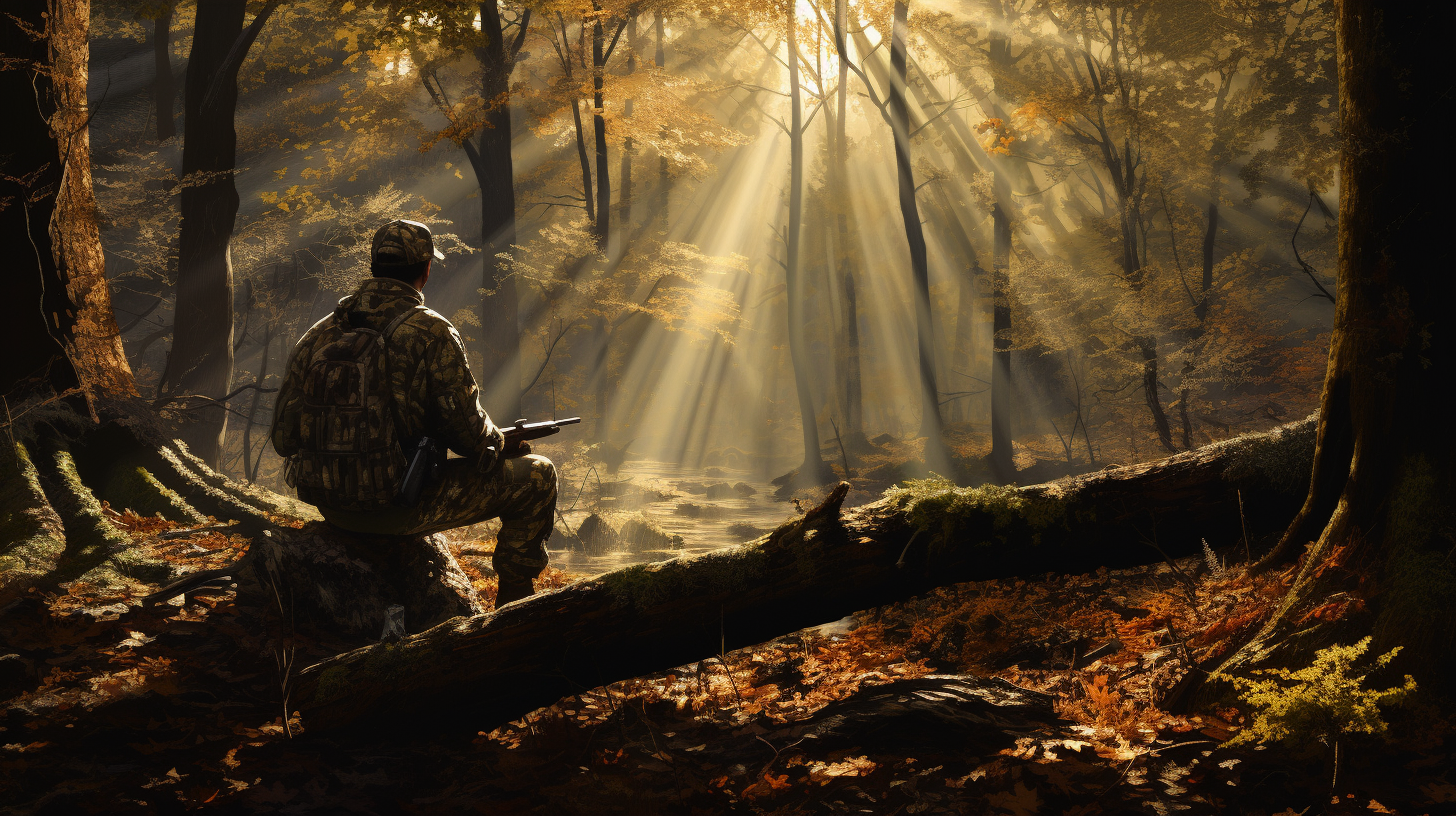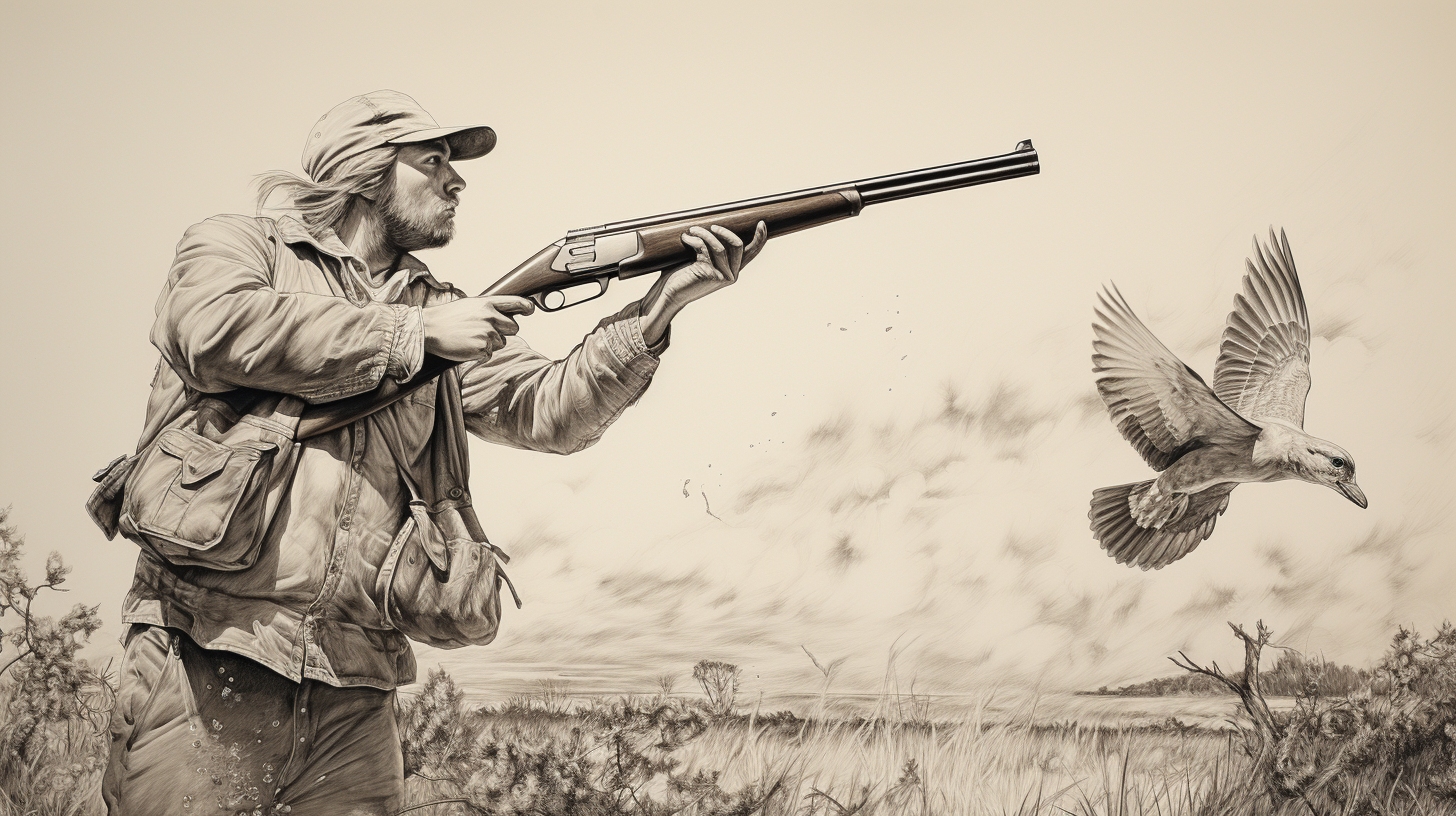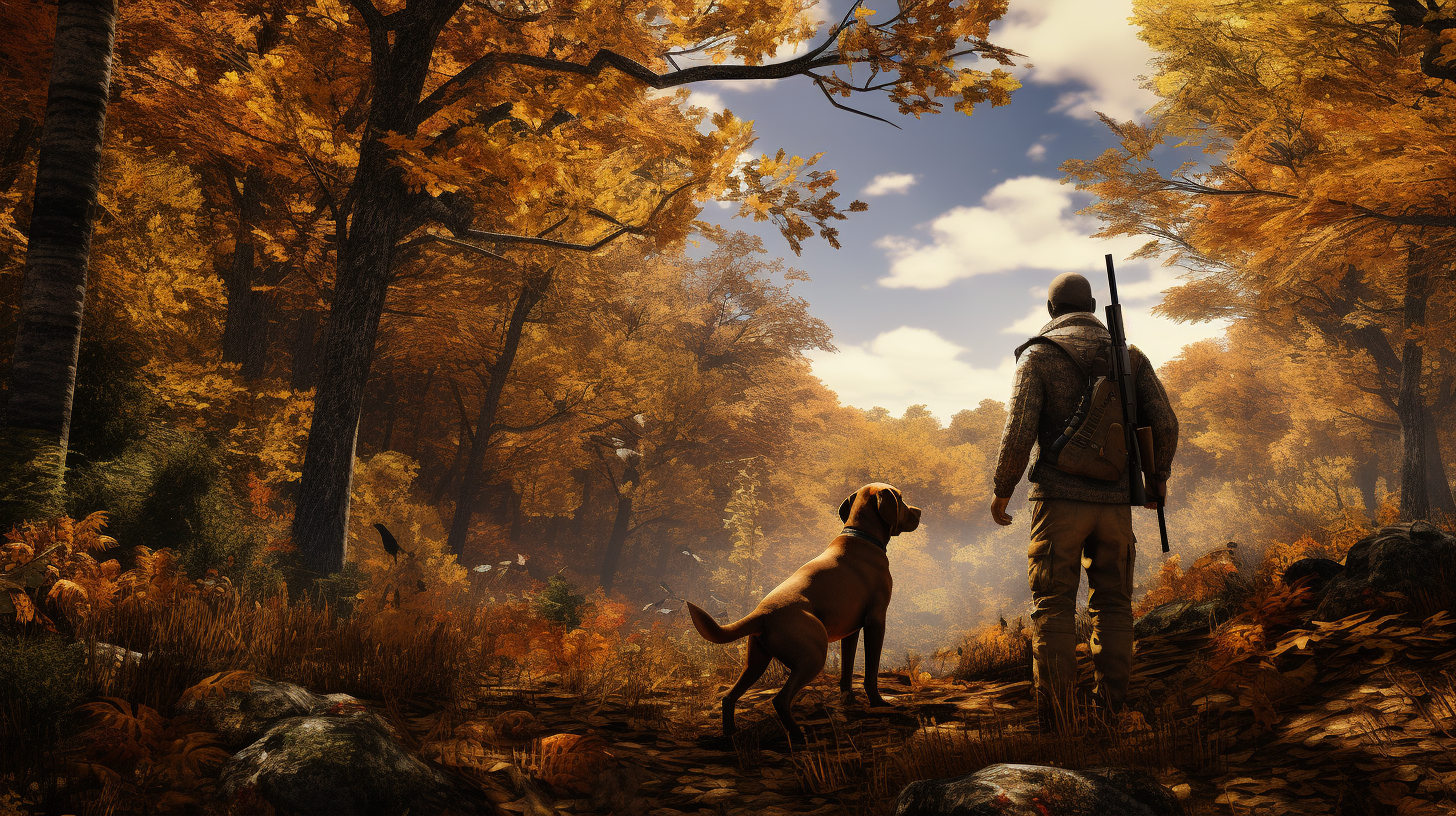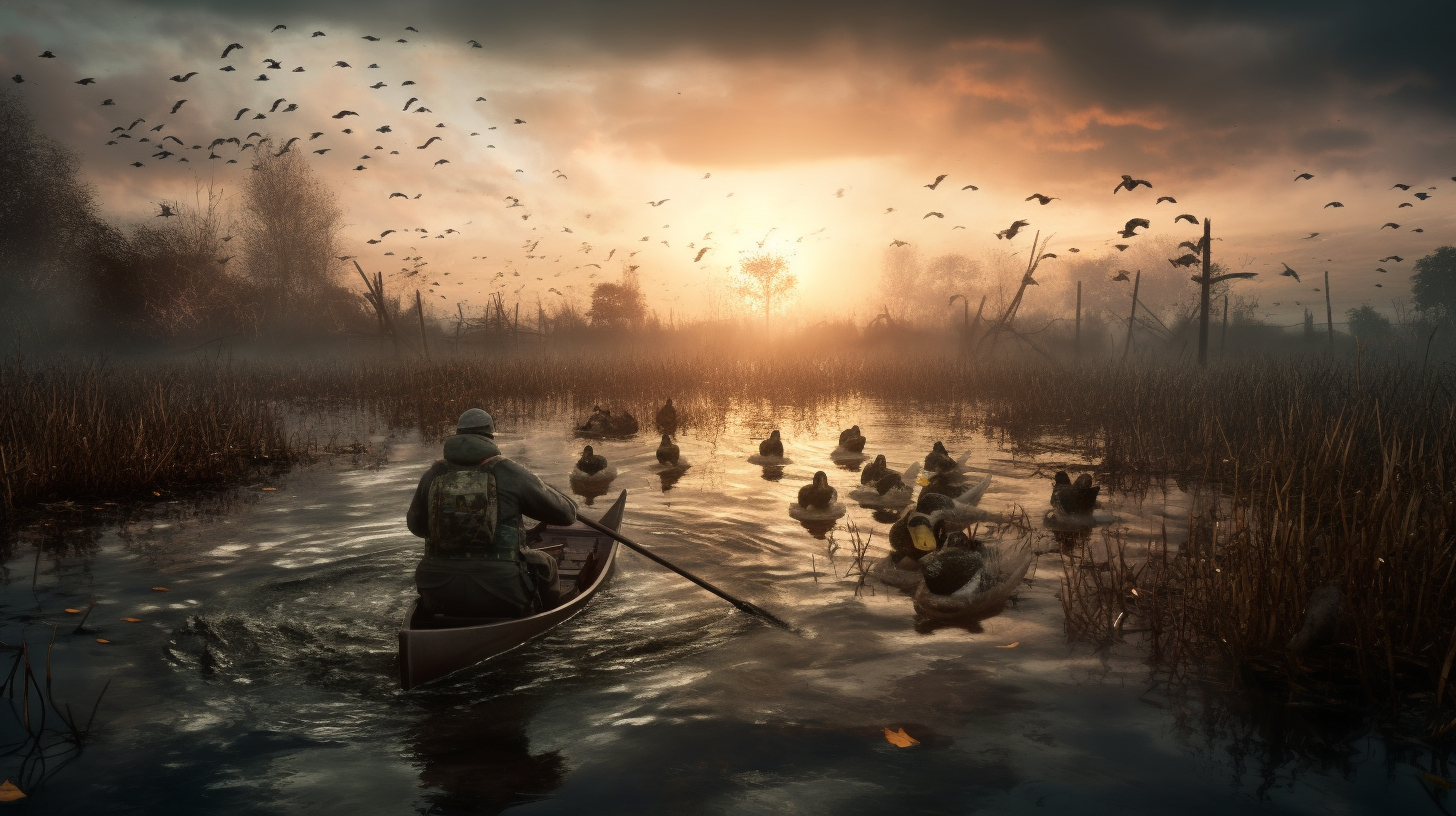Waterfowl Hunting for Duck: What You Need to Know
0%

Picture a crisp morning, mist rising from the water, and the sound of ducks overhead. Duck hunting is a thrilling and time-honored pastime that has captivated generations. Whether you’re a seasoned hunter or a beginner looking to learn the ropes, this comprehensive guide will provide valuable insights and information on everything you need to know about waterfowl hunting for duck. We’ll cover essential gear, hunting techniques, conservation efforts, safety, regulations, and resources for youth and beginners. So, let’s dive in and explore the fascinating world of duck hunting.
Key Takeaways
-
Successful duck hunting requires preparation, licenses & permits, gear, and equipment, as well as contributions from dogs.
-
Mastering effective techniques such as decoys & calls, concealment with blinds, and shot placement are essential for success.
-
Prioritizing safety and adhering to regulations is necessary for ethical waterfowl conservation.
Duck Hunting Essentials
Proper preparation and a comprehensive understanding of the essentials are key to a successful duck hunting adventure. Securing the required licenses and permits and choosing the appropriate gear and equipment are fundamental elements of your hunting experience.
The contribution of our four-legged companions is equally crucial as they retrieve downed birds, thus guaranteeing a successful harvest of migratory game birds.
Licenses and Permits
Hunting ducks legally necessitates specific licenses and permits, which may vary depending on your location. Hunters in Wisconsin must be well prepared as there are numerous requirements. These include a hunting license for Small Game, a State Waterfowl Stamp, a Federal Migratory Bird Hunting Stamp, and a Harvest Information Program (HIP) Registration. Meanwhile, in Canada, a valid Canada Migratory Game Bird Hunting Permit and a Wildlife Habitat Conservation stamp are required, with additional provincial mandates possible.
Awareness of daily bag limit and possession limits is crucial when hunting waterfowl, as it ensures compliance with legal and conservation regulations.
Gear and Equipment
Aside from licenses and permits, suitable gear and equipment are integral to a fruitful duck hunting experience. The most commonly used shotgun for waterfowl hunting is the twelve-gauge, which provides adequate firepower for bringing down ducks. Non-toxic ammunition, such as tungsten or bismuth, is required for waterfowl hunting to protect the environment and reduce lead poisoning in migratory birds.
Essential gear for duck hunting includes:
-
Waterproof clothing
-
Waders
-
Camouflage gloves
-
Binoculars
Investing in quality gear and equipment will help maximize your hunting experience.
Dogs and Retrieval
A trained dog can significantly enhance your duck hunting experience by retrieving downed birds and locating wounded ones. Labrador Retrievers, Chesapeake Bay Retrievers, Golden Retrievers, German Shorthaired Pointers, and Nova Scotia Duck Tolling Retrievers are among the most suitable breeds for duck hunting. These canines possess exceptional skills in tracking and retrieving migratory birds while ensuring that harvested birds are brought to the table.
Nonetheless, bear in mind that untrained dogs can jeopardize a successful hunt and present risks to both the dog and hunters. For example, dogs that are unable to remain stationary may run into the water in search of birds when guns are discharged. It’s essential to invest time and effort in training your canine companion to ensure a safe and productive hunting experience.
Duck Hunting Techniques
To maximize your field time, mastering effective duck hunting techniques is paramount. From the strategic use of decoys and calls to the art of concealment with blinds, understanding these techniques can significantly improve your chances of success.
Additionally, knowing the importance of shot placement and range will help ensure ethical and humane kills.
Decoys and Calls
Decoys and calls are fundamental tools in drawing ducks to your hunting area. With a wide variety of decoys available, hunters can imitate different species and behaviors to appeal to the ducks they’re targeting. Employing a duck or goose call can further entice birds, drawing them within range for a successful shot.
Decoys should be strategically positioned to mimic a natural and appealing environment for ducks. Varying the types and positions of decoys can create a more convincing scene, increasing the likelihood of attracting waterfowl to your hunting spot.
Blinds and Concealment
Maintaining concealment from ducks during a hunt heavily relies on blinds. Pit blinds, layout blinds, and boat blinds are popular options for land and field-based waterfowl hunting. When positioned correctly, a blind provides camouflage and allows the hunter to remain hidden from the ducks’ keen eyesight.
Beyond selecting the appropriate type of blind, guaranteeing its sufficient concealment with natural vegetation or camouflage materials is vital. This can make all the difference in maintaining the element of surprise and increasing your chances of a successful hunt.
Shot Placement and Range
Accurate shot placement and comprehension of the shooting range are indispensable for ethical and successful duck hunting. The recommended shot placement for duck hunting is in the head and chest area, ensuring a swift and fatal kill. Accurately determining the shot range is vital for a successful hunt and can be achieved by:
-
Taking into account factors such as the distance from the blind to objects on the shooting perimeter
-
Considering the shotgun barrel length
-
Evaluating the placement of decoys within an effective and ethical shooting range.
Knowing the maximum effective range of your shotgun and the shot size being used will help you pinpoint the appropriate shooting distance. This knowledge, coupled with careful aim and ethical considerations, will contribute to a more successful and responsible duck hunting experience.
Waterfowl Conservation and Ethics
Maintaining healthy duck populations and habitats hinges on waterfowl conservation and ethical hunting practices. As duck hunters, it’s our responsibility to ensure that our actions align with these principles. By following regulations and respecting the environment, hunters can contribute to the sustainability of waterfowl populations and the habitats they rely on.
Ducks Unlimited and Habitat Restoration
Organizations like Ducks Unlimited work tirelessly to support waterfowl populations through waterfowl habitat restoration and conservation efforts. By protecting existing wetlands, enhancing degraded habitat, and restoring drained wetlands, Ducks Unlimited aims to maintain waterfowl populations and ensure the future of these magnificent birds.
Hunters who hunt ducks can actively aid in preserving waterfowl habitats and promoting sustainable duck hunting by supporting organizations like Ducks Unlimited and collaborating with the Fish and Wildlife Service, a key wildlife service provider.
Ethical Hunting Practices
Responsible duck hunting fundamentally incorporates ethical hunting practices. Following local hunting regulations, such as bag limits and season dates, ensures that duck populations are harvested sustainably. Respecting the environment by minimizing our impact on the land, water, and wildlife ensures that these habitats remain healthy for generations to come.
Ensuring clean and humane kills is another crucial aspect of ethical hunting. Proper shot placement in the head and chest area will result in swift, fatal kills. By prioritizing safety, practicing responsible hunting ethics, and supporting conservation efforts, duck hunters can contribute to the long-term sustainability of waterfowl populations and their habitats.
Public Hunting Areas and Flyways
A plethora of opportunities for duck hunting across diverse regions is provided by public hunting areas and migratory flyways. From hunting on National Wildlife Refuges to following the migratory paths of ducks, these locations offer unique experiences for waterfowl hunters who hunt migratory waterfowl.
Understanding the different public hunting areas and migratory flyways can help you plan your next duck hunting adventure.
Finding Public Hunting Spots
Locating public hunting spots can be a daunting task for new hunters, but resources such as state DNR websites and mapping systems can help simplify the process. By utilizing these tools, hunters can access information on public hunting areas, such as lakes, marshes, and other waterfowl habitats, ensuring a variety of hunting opportunities.
Securing the necessary licenses and permits and acquainting yourself with any location-specific rules or restrictions is crucial when planning your hunting trip. By taking these steps, you’ll be well-prepared for a successful hunt and ensure that you’re hunting legally and responsibly.
Migratory Flyways
Migratory flyways, such as the Mississippi, Atlantic, Mountain, and Pacific flyways, are routes used by migratory waterfowl during migration, providing hunting opportunities across North America. Following these flyways can lead to unique hunting experiences, as you’ll encounter a variety of duck species as they travel between their breeding and wintering grounds.
A deeper understanding of the timing and patterns of migratory flyways can enhance your hunting trip planning. This knowledge, combined with effective hunting techniques and a commitment to conservation and ethical practices, will contribute to a more fulfilling and successful duck hunting experience.
Safety and Regulations
Safety and regulations, ensuring the well-being of both hunters and the environment, are key elements of duck hunting. From firearm safety to legal requirements and restrictions, abiding by these guidelines is crucial to the success and sustainability of waterfowl hunting.
As responsible hunters, it’s our duty to prioritize safety and adhere to regulations to protect ourselves, our fellow hunters, and the environment.
Firearm Safety
Firearm safety is a critical component of duck hunting, as it reduces the risk of accidents and injuries. The four rules of basic firearm safety include:
-
Treating every firearm as if it were loaded
-
Always pointing the muzzle in a safe direction
-
Keeping your finger off the trigger until ready to shoot
-
Knowing your target and what lies beyond it.
Alongside adhering to these basic rules, regular maintenance of your firearms and practicing proper handling techniques is key. By prioritizing firearm safety, we can ensure that our hunting experiences are both enjoyable and secure.
Legal Requirements and Restrictions
Legal requirements and restrictions for duck hunting vary by location and include:
-
Licenses
-
Permits
-
Bag limits
-
Species restrictions
It’s essential to familiarize yourself with the specific regulations for your hunting area to ensure that you’re hunting legally and responsibly. By adhering to these guidelines, you’ll contribute to the sustainability of waterfowl populations and the habitats they rely on.
Ensure to secure the necessary licenses and permits and review any location-specific regulations or restrictions when planning your hunting trip. This will not only ensure a successful and legal hunt but will also contribute to the long-term sustainability of waterfowl populations and their habitats.
Youth and Beginner Duck Hunting
The initiation of new hunters into the sport of duck hunting is crucial in preserving the tradition and securing the future of waterfowl hunting. Youth and beginner duck hunting programs and resources provide opportunities for new hunters to learn essential skills and gain valuable experience.
By fostering a love for the sport and teaching responsible hunting practices, we can ensure that future generations will continue to enjoy the thrill of duck hunting.
Youth Hunts
Youth hunts provide opportunities for young hunters to:
-
Learn and practice duck hunting without the need for licenses or stamps
-
Join their relatives or companions in the blind, fostering a love for the sport and passing on the hunting legacy
-
Gain invaluable learning experiences, such as scouting, calling, and decoy placement, which are vital for successful hunting.
Participation in youth hunts allows young hunters to cultivate an appreciation for the outdoors, hone essential hunting skills, and forge enduring memories with loved ones. These experiences will not only enrich their lives but also contribute to the future of waterfowl hunting as they learn to hunt waterfowl effectively.
Resources for Beginners
For beginner duck hunters, a wealth of resources is available to help develop skills and knowledge in the sport. Hunting guides, educational materials, and mentorship programs can provide valuable insights and hands-on experience for novice hunters. These resources can help beginners learn essential techniques, firearm safety, and ethical hunting practices, ensuring a successful and enjoyable hunting experience.
Beginners can acquire the necessary skills and confidence to relish the sport of duck hunting by leveraging these resources and seeking advice from seasoned hunters. In turn, they will contribute to the sustainability of waterfowl populations and the habitats they rely on, ensuring the future of duck hunting for generations to come.
Summary
In conclusion, duck hunting is a rich and rewarding pastime that requires knowledge, skill, and a commitment to conservation and ethical practices. By understanding the essentials of licenses, gear, and techniques, as well as adhering to safety and regulations, hunters can enjoy a successful and sustainable duck hunting experience. Whether you’re a seasoned hunter or just starting, remember to respect the environment, prioritize safety, and pass on the hunting legacy to future generations.
Frequently Asked Questions
What is best for duck hunting?
For successful duck hunting, a 12-gauge semi-automatic shotgun is recommended. A 20-gauge can be used for smaller birds like teal, but a 12-gauge is preferable for beginners with the strength to handle it.
What is the best month to hunt ducks?
November is the best month to hunt ducks, as temperatures start to drop and you can take advantage of the early migration days. The sun tends to keep ponds and lakes thawed out during the day, making it a perfect time to go duck hunting.
What's the point of duck hunting?
Duck hunting offers a great opportunity to connect with nature, hone awareness and observation skills, and understand how to adapt to changing conditions.
How do you duck hunt for beginners?
For beginners, duck hunting requires the right gear, hunting with experienced companions, identifying the ducks and finding permission to hunt, selecting a firearm, setting up decoys, perfecting your call, and always hunting legally.
What licenses and permits do I need for duck hunting?
You will need a hunting license, duck stamp, and other local permits in order to go duck hunting.


